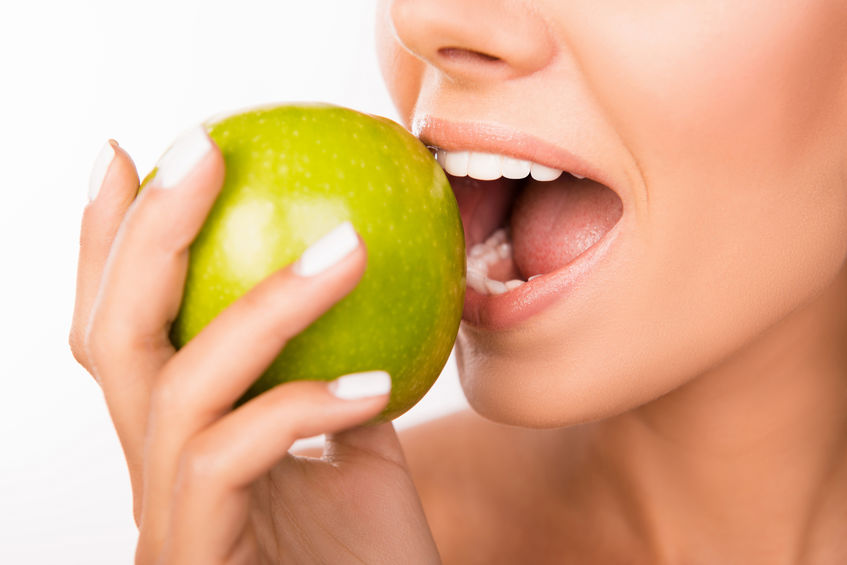Shawn Achor is a Harvard professor of psychology and author who has a wildly successful TED Talk on something called “positive psychology.” For most of the twentieth century, psychologists studied what made us miserable (depression, stress, anxiety, and other mental disorders) and disregarded those who are living lives that are above average. They focused on taking sick people and making them normal rather than normal people and helping them thrive.
Achor is a part of a new movement that studies what makes people happy, creative, energized, and connected, all things that keep people from getting sick in the first place.
In this post, we want to do the same for dentistry. Most information out there will give you the answers when things go wrong, like cavities, implants, and bad breath. But what about the things that keep us from getting there in the first place?
Yes, good dental hygiene is essential (brushing, flossing, etc.) but so are the foods we consume on a daily basis. Below are four foods that help your mouth stay clean and fresh.
Yogurt
Yogurt contains both calcium and probiotics (a bacteria known to fight off “bad bacteria” in our mouth and gut). Calcium is good for bones, which includes your teeth, and keeps your tooth enamel healthy and strong (enamel is the coat of armor for your teeth that can deteriorate with poor oral hygiene and diet). Probiotics can help with healthier gums and fewer cavities (if you choose a yogurt with zero sugar).
Try replacing your after-dinner ice cream with some yogurt.
Leafy Greens
You’ll seldom find a “healthy food” list without leafy greens. These include spinach, kale, chard, and collards. These power greens are loaded with vitamins and minerals, like folic acid (can be good for gums) and calcium (good for enamel).
Crunchy Foods
Crunchy foods, like carrots, apples, and celery can be a good replacement for snacks like chips and crackers. Because these foods require so much chewing, it increases the amount of saliva we produce. Saliva is important because it keeps the mouth moist, fighting germs, bad breath, cavities, and tooth decay. On top of that, these foods are fibrous and filled with vitamin A, which is good for your gums.
Black Tea
Livescience.com shared a study from the University of Illinois at Chicago which found that black tea can reduce plaque on the teeth. Black tea contains compounds called polyphenols, which have been shown to have a variety of health benefits from diabetes to gut health. As far as your mouth is concerned, these polyphenols slow the growth of bacteria and protect your gums and teeth from cavities. The Mediterranean diet is a diet that is loaded with natural polyphenols.

